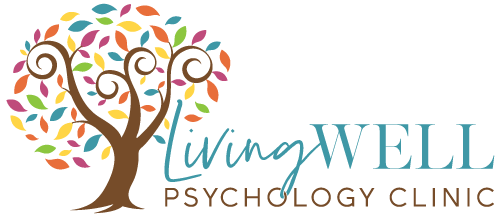Reframe Traumatic Experiences & Reduce Intensity
At Living Well Psychology Clinic, we offer EMDR therapy (eye movement desensitisation and reprocessing) to support individuals struggling with the effects of trauma, anxiety or distressing memories.
EMDR is an evidence-based approach designed to help clients process and reframe traumatic experiences in a safe and structured environment. Unlike traditional talk therapy, EMDR focuses on the brain’s natural ability to heal through guided eye movements or other forms of bilateral stimulation. These movements help the brain reprocess distressing memories, reducing their emotional intensity and enabling clients to move forward without the weight of past experiences. EMDR has proven particularly effective for conditions like PTSD, phobias and emotional distress caused by past events.
At Living Well Psychology Clinic, we provide a supportive space where clients can work through their challenges and build a foundation for emotional well-being and resilience.
Frequently Asked Questions
What is the concept behind EMDR therapy?
EMDR therapy is based on the idea that traumatic memories are stored in a way that prevents the brain from fully processing them. Bilateral stimulation, such as guided eye movements, helps the brain reprocess these memories, reducing their emotional charge and making them less distressing. This process is thought to mimic the natural healing mechanisms activated during REM sleep.
Is EMDR therapy suitable for everyone?
EMDR therapy can prove effective for many individuals, particularly those dealing with trauma, PTSD, phobias or anxiety. However, it may not be suitable for individuals with certain mental health conditions or those unable to focus on specific memories. A thorough initial assessment ensures that EMDR is the right approach for your needs, and alternatives can be recommended if necessary.
How EMDR Therapy Works
EMDR therapy begins with an initial consultation to understand your experiences, symptoms and goals for therapy. The process is structured into eight phases, starting with history-taking and preparation to ensure you feel comfortable and informed about the approach.
Once readiness is established, EMDR sessions focus on identifying a specific traumatic memory or distressing thought. During the reprocessing phase, bilateral stimulation is introduced, such as guided eye movements, tapping or audio tones, while the patient focuses on the memory. This stimulation helps the brain reprocess the memory, reducing its emotional intensity and altering negative beliefs associated with it. Sessions also include positive visualisation exercises to reinforce healthier thought patterns and build emotional resilience.
Progress is reviewed regularly, and the process is paced to ensure you feel safe and supported throughout your healing journey.
Who Should Consider EMDR Therapy?
EMDR therapy can be a valuable tool for individuals facing a range of emotional and psychological challenges.
- Trauma survivors: Those who have experienced accidents, abuse or other distressing events can process traumatic memories and reduce symptoms like flashbacks or anxiety.
- Individuals with PTSD: EMDR is highly effective for managing post-traumatic stress, helping clients regain emotional stability and control over their lives.
- Phobias and fears: Those struggling with intense fears, such as a fear of flying or public speaking, can benefit from reprocessing the root causes of their anxiety.
- Grief and loss: EMDR helps individuals process the pain of losing a loved one, reducing overwhelming emotions and fostering acceptance.
- Low self-esteem or negative beliefs: Clients who feel held back by unhelpful beliefs about themselves can use EMDR to develop more positive and empowering perspectives.



























